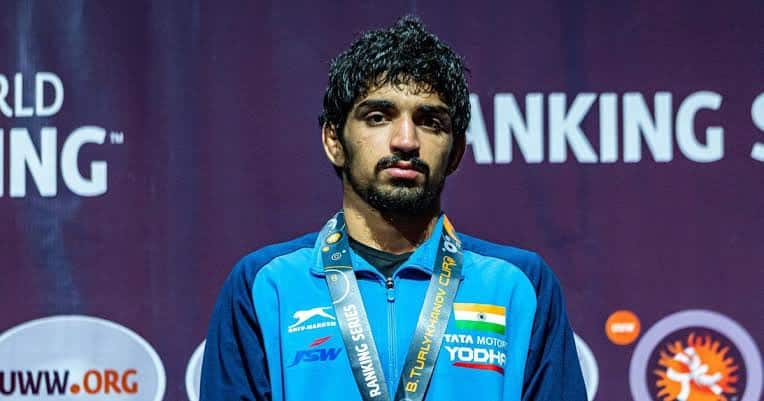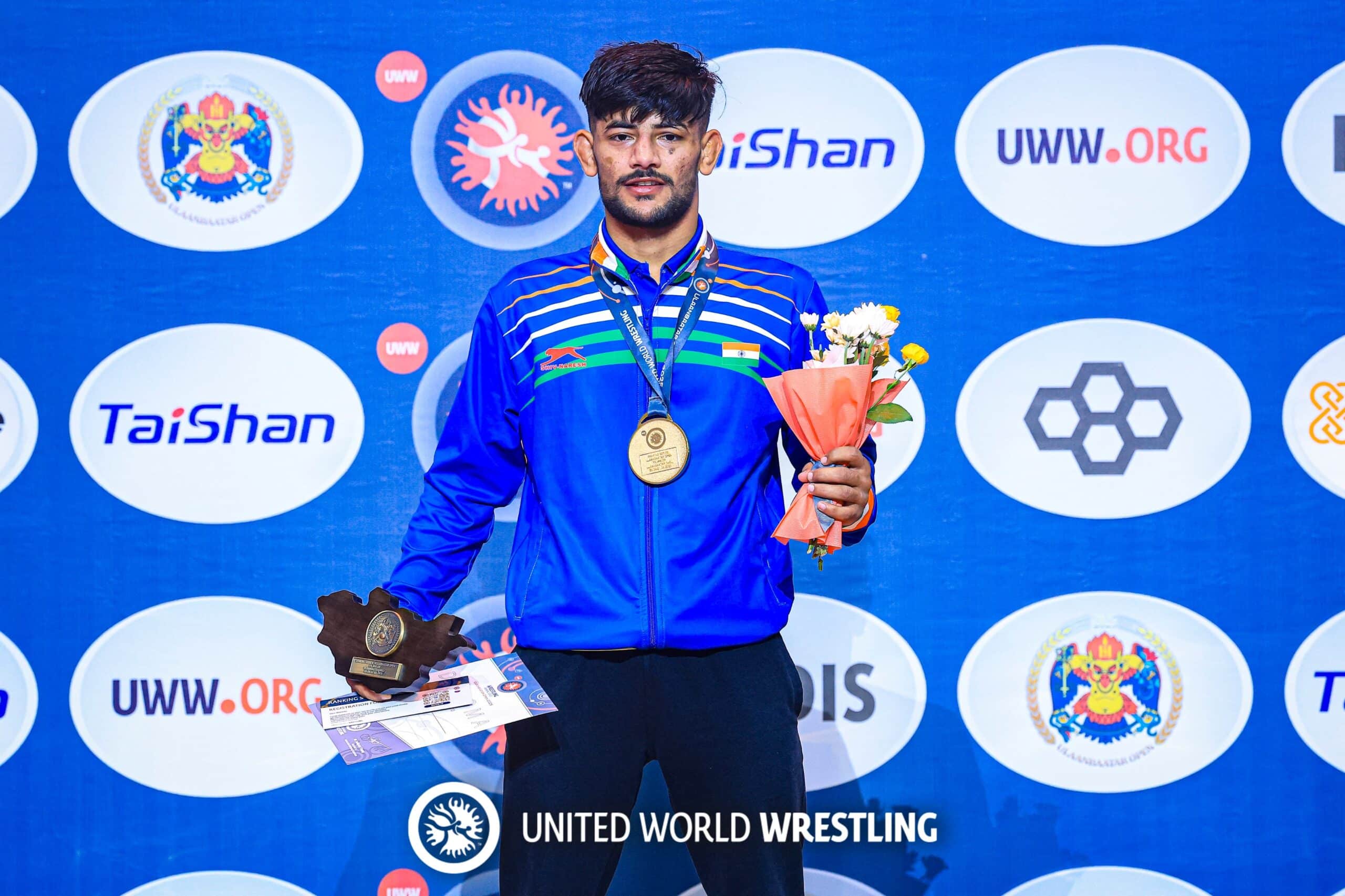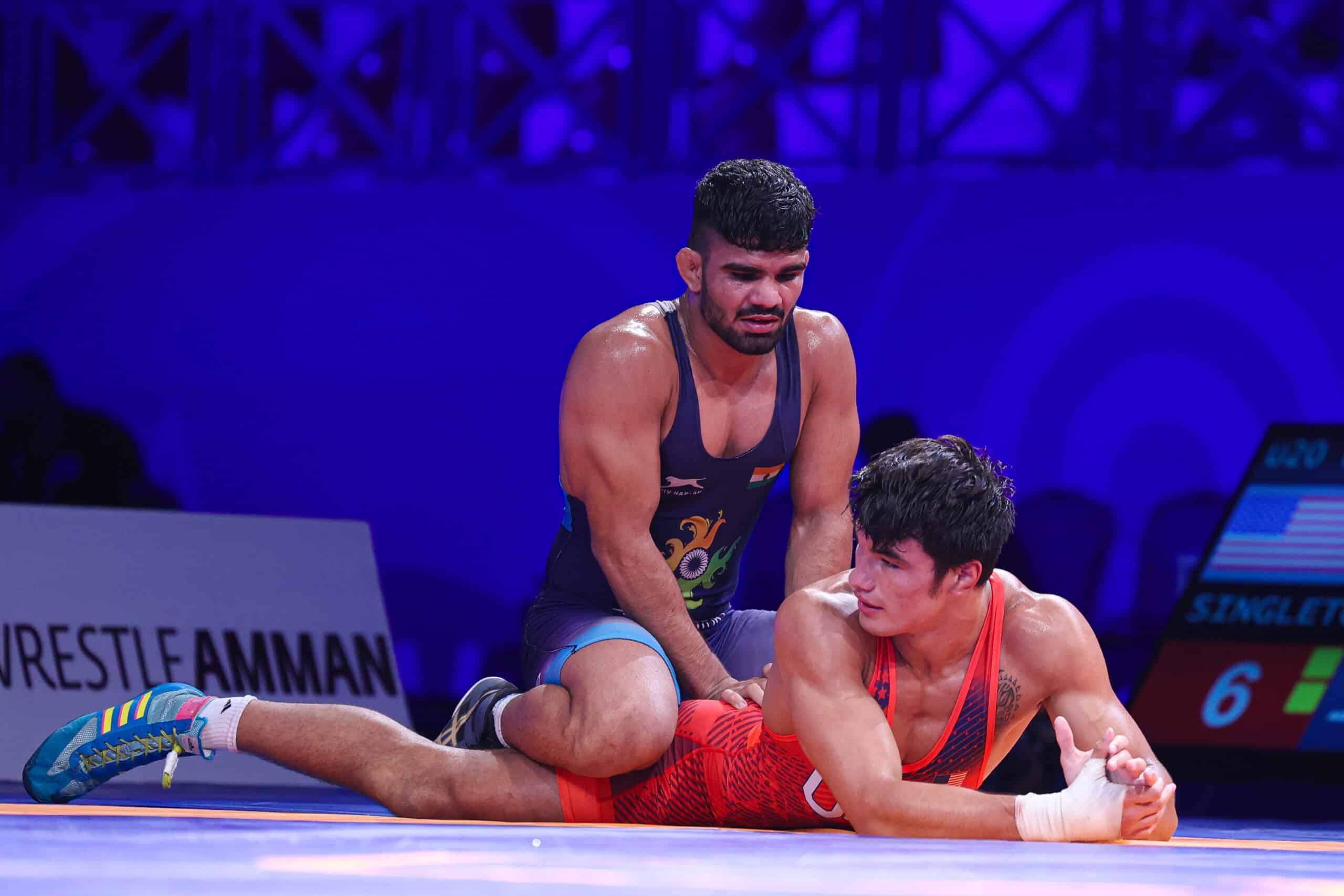The Ulaanbaatar Ranking Series in Mongolia proved to be a gritty test for India’s men’s freestyle wrestling contingent. Despite several promising performances, the team ended the competition without a single gold medal, settling for two silver and four bronze, a result that reflects both the depth and the challenges of the squad in an Olympic year.
A Campaign of Missed Finals and Close Calls
India’s biggest bright spot came in the 61kg category, where Udit delivered a composed and calculated performance to reach the final. His 2-1 win over Artem Gobaev (UWW) in the semifinal — where a single takedown in the first period made the difference — showed tactical maturity. But in the final against Tuvshintulga Tumenbileg (MGL), Udit couldn’t overcome the Mongolian’s attacking style, ultimately settling for silver.
The other silver came from Deepak Punia (92kg). After opening with a technical superiority win and a hard-fought 4-1 victory over Bat-Erdene Byambasuren (MGL), Deepak displayed his trademark pressure-based wrestling. However, in the final, he came up short against Iran’s representative, who managed to negate Punia’s push pace with solid counters.
While gold remained elusive, several Indian wrestlers stepped onto the podium. Aman Sehrawat, returning to action after his Paris Olympics bronze, grabbed a bronze medal at 57kg. In a thrilling semifinal, Aman led 11-10 in the final 20 seconds against Pan-American champion Roman Bravo Young (MEX), only to be caught in a last-second takedown and turn that ended in a dramatic fall. Aman bounced back well to finish with bronze, maintaining his status as one of India’s most consistent performers on the international circuit.
Jaideep (74kg) produced an inspired run to the semifinals, where he battled hard but lost 5-3 to Yones Emami (IRI). Emami’s early 4-0 lead proved just enough, despite Jaideep’s late takedown attempt. Jaideep’s earlier win over Noorali Abouzari (IRI), where he reversed a 5-0 deficit to secure a fall, stood out as one of India’s most courageous efforts.
Amit (79kg) too made it to the semifinals, where he fell to Fariborz Babaeir (IRI) in a controlled loss. Having earlier lost to Magomet Evloev (TJK) in the group stages, Amit rebounded well to secure the bronze, showing resilience against strong international opposition.
The final bronze for India came from Vicky (97kg), who impressed with a gritty 4-0 win over U23 European champion Uladzislau Kazlou. That win underscored Vicky’s potential at the weight class and marked one of the more significant individual wins for India at the tournament.
Misses in Other Weights
The depth of India’s squad meant expectations were high across several categories, but some missed opportunities stood out. Rahul (57kg) upset European U23 champion Lev Pavlov (UWW) 5-0 in his opener but couldn’t carry the momentum forward, losing 6-3 in the semifinal to Munkh Erdene Batkhuyag (MGL).

Rohit (65kg) suffered an 11-0 defeat to Ahmet Duman (TUR), who used a bodylock and lace to finish the bout early. Jaideep, despite his comeback win in the quarters, couldn’t breach the Iranian defense in the semifinal.
In the 70kg category, Vishal Kaliramana lost narrowly to Mohammadali Amouzad (IRI) in a 3-2 thriller where the Iranian pulled off a clutch takedown from a disadvantageous position.
India also had a representative in 125kg, but none reached the podium in that weight.
Recap: India’s Medal Tally – Men’s Freestyle
- 🥈 Udit (61kg)
- 🥈 Deepak Punia (92kg)
- 🥉 Aman Sehrawat (57kg)
- 🥉 Jaideep (74kg)
- 🥉 Amit (79kg)
- 🥉 Vicky (97kg)
Still No Gold: A Growing Concern?
For all the podium finishes, the inability to convert even one final into gold is a concern, especially with the Los Angeles 2028 cycle in mind. With the senior wrestlers returning from post-Olympic breaks and younger names trying to cement their place, India’s men’s freestyle scene seems to be in a transition phase.
Udit’s rise, Vicky’s statement win, and Aman’s consistency are positives to take forward. But the lack of clinical execution in semifinal and final bouts — often against Iranian or Mongolian opposition — points to areas where Indian wrestlers must evolve: tactical variety, edge in scrambles, and match management.
With the Budapest World Championships later this year and more ranking events ahead, India will hope to not just keep filling the podium — but stand at its very top.


